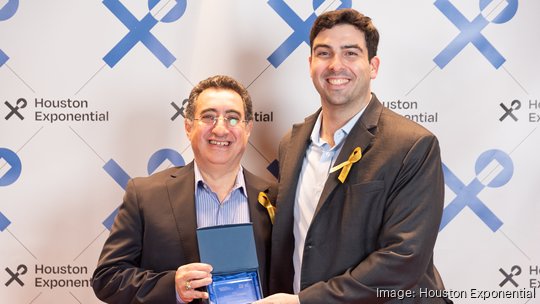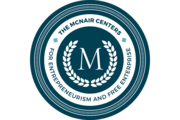
When Japanese software company Yokogawa Electric agreed to a deal to acquire Houston-based data analytics startup Fluence Analytics, it marked the conclusion of several years of groundwork laid by Fluence founder and COO Alex Reed.
The agreement follows Yokogawa’s previously signed distribution agreement for Fluence products in Asia, the Middle East and North Africa. But for Fluence, the Japanese company offers a needed hardware complement to its software offerings, Reed told the Houston Business Journal.
Fluence — now known as Yokogawa Fluence Analytics — produces a platform providing real-time data analytics for companies manufacturing polymers known as automatic continuous online monitoring of polymerizations (ACOMP). Reed licensed Tulane University technology developed by his father to launch the company as Advanced Polymer Monitoring Technology in New Orleans before moving the headquarters to Stafford in 2021.
While Reed was a researcher at Tulane, corporations who had helped fund his team’s work would ask about purchasing the software, but the option wasn’t available, Reed said. With the help of several Tulane alumni, including veteran Silicon Valley investor Bill Bottoms, Reed got the company off the ground.
"If you can provide a solution to something someone wants to buy, [you're] meeting a market need," Reed said. "We licensed the intellectual property with the joint development agreement to launch the first-version prototype at this site that was 45 minutes down the [Mississippi] River."
Around the same time Fluence came to Houston, Yokogawa participated in a $7.5 million funding round for Fluence alongside Energy Innovation Capital, JSR Corp. and Diamond Edge Ventures. Reed said meetings during the fundraising process convinced him to further develop Fluence’s partnership with Yokogawa.
"We're trying to follow our data all the way through to control and enablement of autonomous operations in the power industry," Reed said. "[Yokogawa will] complement us in the hardware department, which is where we need the most help."
Following the initial distribution agreement, Reed had been looking for a CEO to allow him to reduce his role in Fluence and found one in Jay Manouchehri, who was hired in 2022 on the back of his work with data analytics for the oil and gas industry. But Manouchehri convinced Reed to stay on with the company as COO, believing the company was already on a good path when he arrived.
Following the acquisition, Yokogawa Fluence plans to hire for existing and new roles, Reed and Manouchehri said, though neither could disclose the company’s target. Yokogawa Fluence currently has 25 employees at its Stafford headquarters.
Both Reed and Manouchehri said the company’s growth parallels a surge in industrial analytics funding that has taken place since the company incorporated. The ACOMP technology is a breakthrough in that it allows polymer plant technicians instantaneous lab results compared to previous systems that required time delays due to lab processing.
"What has really, really sped up the interest and people coming to us is the fact that they could now automate the entire process," Manouchehri said.
The pandemic helped drive the need for faster results, as technicians were not always able to work in laboratory settings, Reed and Manouchehri added. Asked to predict the next breakthrough in industrial analytics, Manouchehri said he anticipates a complete automation of chemical supply chains as an industry standard.
"You're going to have companies producing polymers X, Y and Z," Manouchehri said. "A customer can dial in and say, 'I want this particular plastic, with this particular property,' [and] those properties get put in, produced, and delivered autonomously."
Reed agreed with the prediction but differed on his timeline for the goal of automation. He said pioneers in analytics were only scraping the surface currently, and that an achievable goal would be completing a fully autonomous plant.
"To build something like that for cybersecurity and infrastructure, you have to start with a greenfield project and you've got to do it super correct from the ground up," Reed said. "The timeline to get to this fully orchestrated utopia of systems of systems will happen — hopefully, I'm around to see it."





